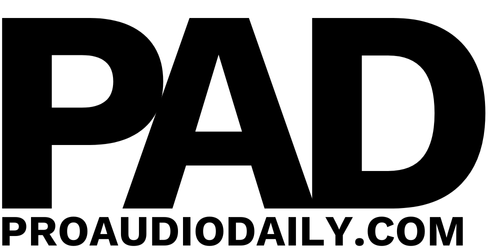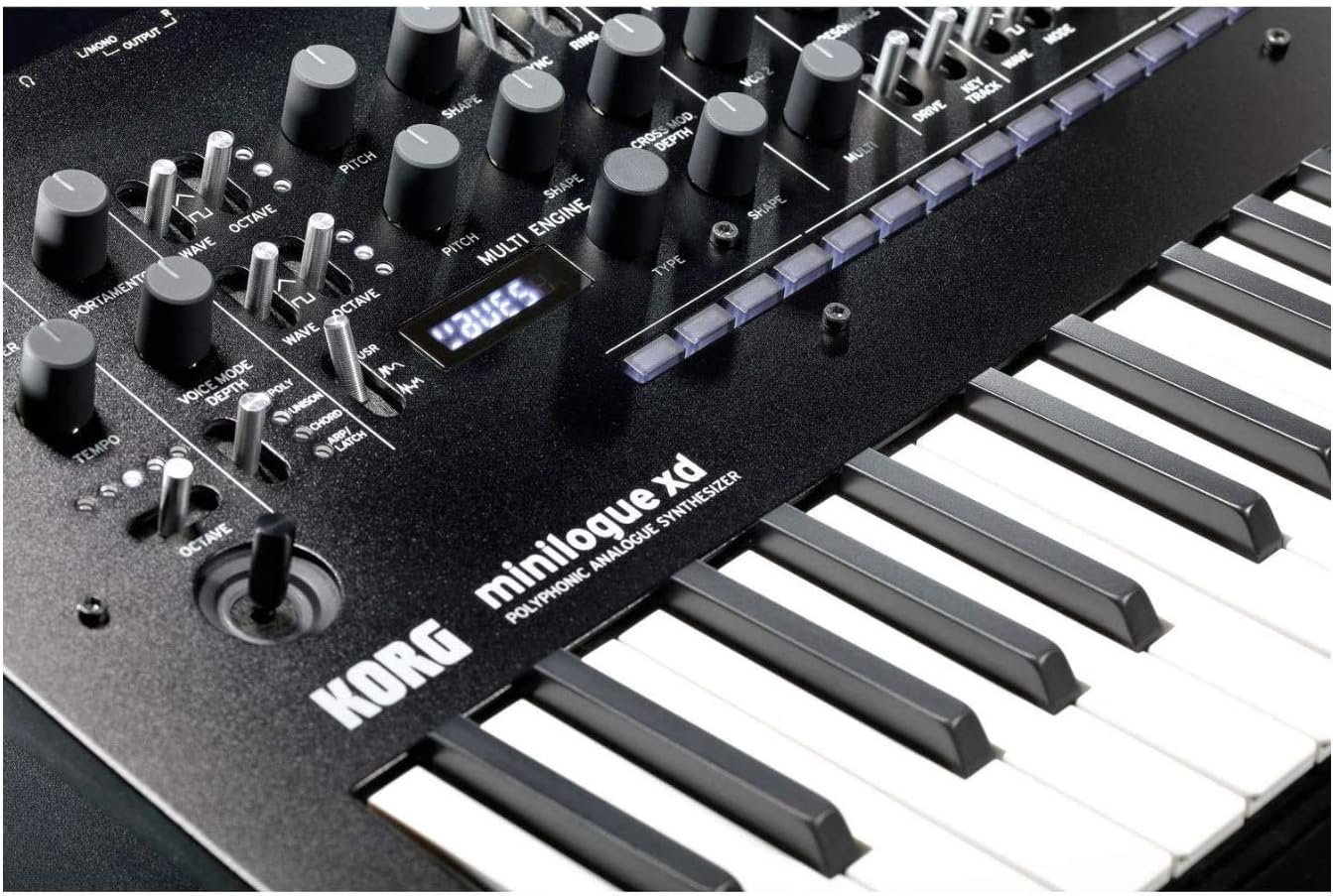
11 Feb Dare to Compare: Top 3 Modern Analog Synthesizers Under $500
*We may earn affiliate commissions from products we recommend. Read more here*
The history of music is a series of turning points. The electric guitar. The synthesizer. The drum machine. Each innovation, when placed in the right hands, transformed the landscape. Today, we stand at one such turning point for modern music creators: access to affordable, powerful analog synthesizers.
In this comparison, we’ll look at three models that embody this shift: the Yamaha Reface CS, the Korg Minilogue XD, and the Behringer Model D. Each offers a different doorway into the universe of analog synthesis, and each tells its own story.
Let’s explore these instruments not just as products but as characters in your creative narrative.
Our Pick
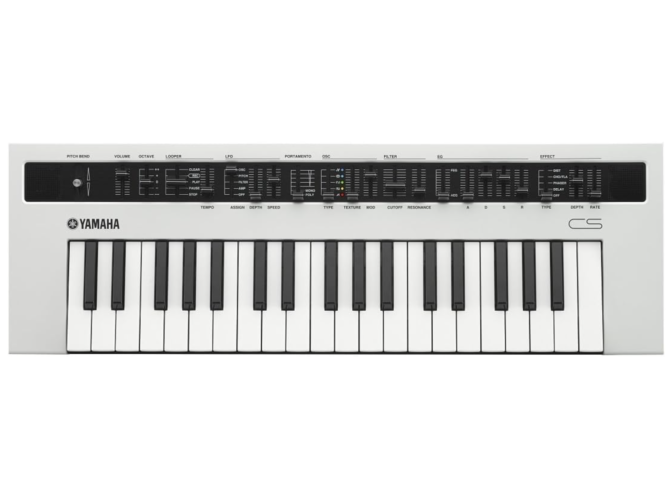
|
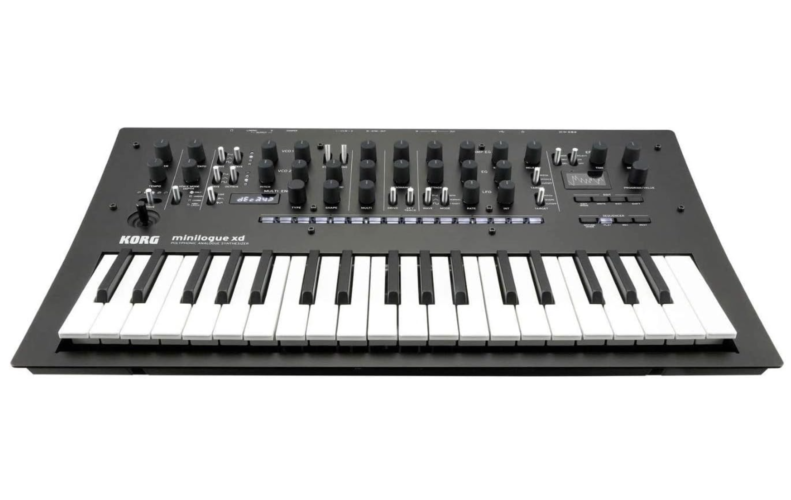
|
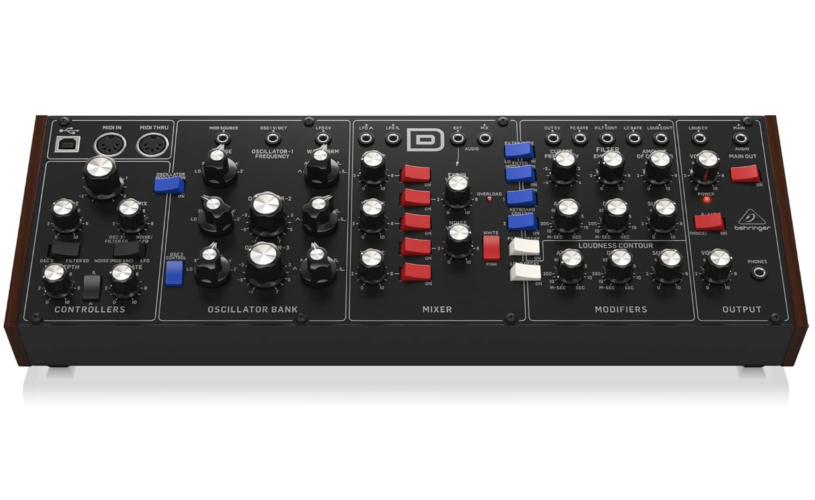
|
|
|---|---|---|---|
| Price | $499 | $499 | $349 |
| Type | Analog Modeling | Analog/Digital Hybrid | True Analog |
| Polyphony | 8 voices | 4 voices | Monophonic |
| Oscillators | 5 types | 2 analog + 1 customizable digital | 3 analog |
| Filter | Multi-mode | 2-pole analog | 24dB Ladder |
| Sequencer | No | 16-step | No |
| Portability | Lightweight and portable | Semi-portable | Desktop only |
Yamaha Reface CS: Compact and Creative
Imagine you’re walking through a crowded street festival. A busker’s hands dance over a compact keyboard, creating a kaleidoscope of shifting tones. That could be the Yamaha Reface CS, a synth designed to be as portable as it is versatile. It doesn’t just produce sound—it invites you to play, experiment, and sculpt with five oscillator modes that range from lush pads to metallic leads.
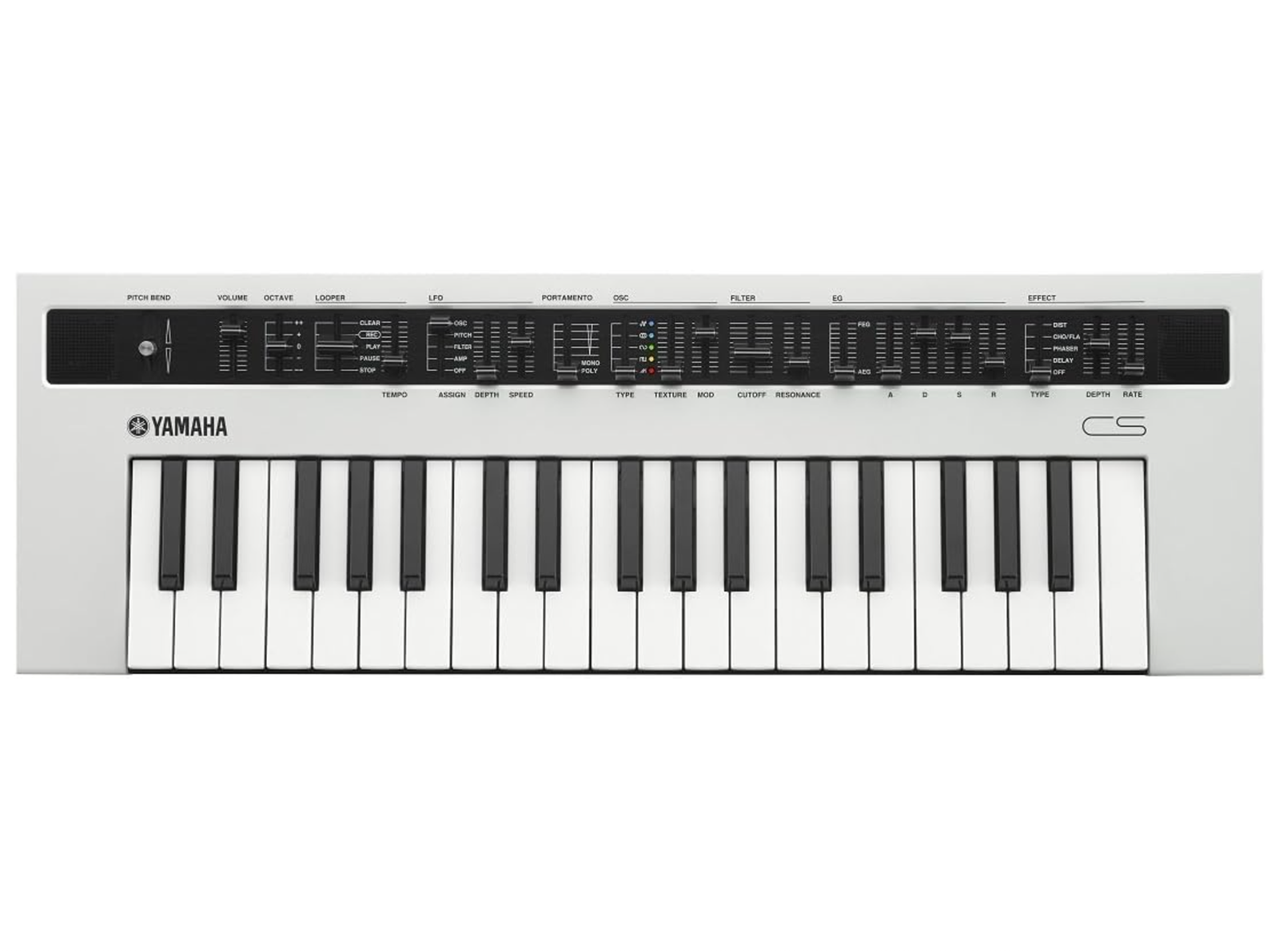
Yamaha Reface keyboards are designed around the practical needs of contemporary musicians. Continuing the legacy of Yamaha’s many groundbreaking keyboard instrument interfaces.
The Reface CS embodies the ethos of mobility and immediacy. It’s perfect for the musician who’s always on the move. In a world where ideas strike at unexpected moments, having this tool within reach can make all the difference.
Pros:
- Extremely portable and battery-powered
- Intuitive, hands-on interface
- 8-voice polyphony for complex harmonies
Cons:
- Limited depth compared to studio-sized synths
- Lacks a built-in sequencer
Best For: The traveling musician or the on-the-go creator.
Korg Minilogue XD: The Hybrid Innovator
Every now and then, a machine arrives that feels like a bridge between eras. The Korg Minilogue XD is that machine. It’s part analog throwback, part modern marvel. Its customizable digital oscillator and four-voice polyphony place it squarely in the present, while its lush analog core connects it to the classic synths of the past.

The minilogue xd newly adds a digital multi-engine, effects, a powered-up sequencer, and micro tuning functionality
I once heard a sound engineer describe the Minilogue XD as a “Swiss watch of sound design.” Its 16-step sequencer and built-in effects allow users to shape and manipulate sonic landscapes with surgical precision. The Minilogue is the synth for those who see music as both art and architecture—a construct of layers, patterns, and evolving textures.
Pros:
- Hybrid design with analog and digital elements
- Built-in reverb, delay, and modulation effects
- Sequencer adds dynamic creative possibilities
Cons:
- Slightly bulkier than ultra-portable options
- Limited to four voices of polyphony
Best For: Sound designers and electronic artists seeking depth and flexibility.
Behringer Model D: The Vintage Revival
There’s a romance to vintage equipment. It carries the weight of history—a reminder of pioneers who shaped entire genres with just a few oscillators and filters. The Behringer Model D is a tribute to that legacy, faithfully recreating the iconic Moog Minimoog Model D. This monophonic synth is pure analog, with three oscillators and a 24dB ladder filter that delivers fat, resonant tones.

Behringer MODEL D legendary analog synthesizer with triple vcos, ladder filter, LFO and eurorack format.
The Model D isn’t about convenience or digital shortcuts. It’s about embracing limitations to unlock creativity. It’s for musicians who want to connect with the raw, tactile experience of shaping sound in real-time.
Pros:
- Authentic analog sound inspired by a classic
- Affordable entry point for vintage tones
- Perfect for bass and lead sounds
Cons:
- Monophonic (only one note at a time)
- No built-in sequencer or effects
Best For: Purists seeking timeless analog character.
Which Synth Is Right for You?
In music, the tools you choose reflect your aspirations. Each of these synths offers a different pathway into sonic exploration, tailored to specific artistic visions and working styles.
The Yamaha Reface CS speaks to those who thrive on spontaneity and need their gear to travel as easily as they do. Whether you’re performing on the street or sketching ideas on a train, this synth ensures you’re never without a creative spark. Its multi-mode oscillators and portability give it an edge for those who value adaptability.
The Korg Minilogue XD is designed for the craftsman of sound. It’s ideal for artists who enjoy deep sound design and structure—those who build intricate layers and sequences in their music. The blend of analog and digital synthesis means endless experimentation, while the built-in effects and sequencer let you create full compositions right from the synth itself. This is the tool of choice for performers and producers pushing sonic boundaries.
The Behringer Model D appeals to purists and nostalgic innovators alike. It’s not a synth for everyone, but for those who crave raw analog power and vintage tones, it’s a dream come true. With its rich, warm basslines and soaring leads, it’s perfect for genres that demand sonic authenticity, like funk, ambient, or classic electronica. If you’re willing to work within its monophonic limitations, the rewards are unparalleled.
Ultimately, the decision is less about features and more about who you are as an artist. What inspires you? What environments fuel your creativity? Once you answer these questions, the right synth will reveal itself.
Each of these synths offers something remarkable. They are not just instruments but catalysts for creativity. Whether you’re composing soundtracks, performing live, or experimenting in your home studio, these machines can help you unlock new realms of sound.
So, which one will you let into your story?
